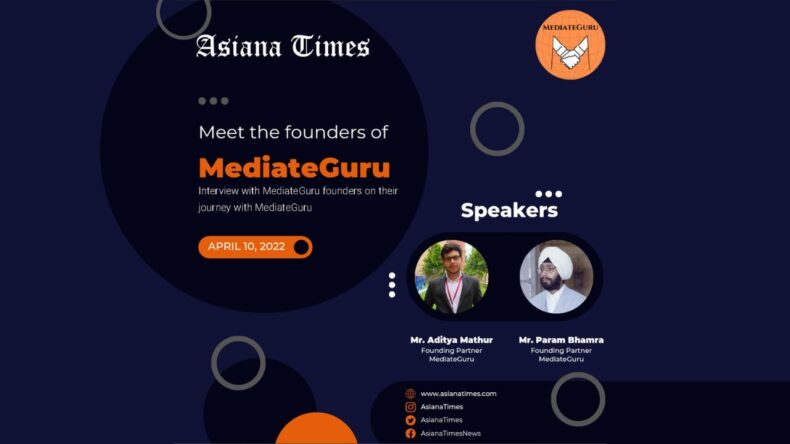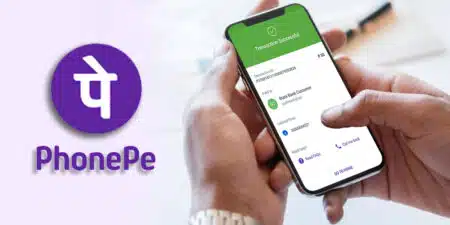Indian courts have been well known for being stagnant, with unresolved cases pending for many years. The scenario is that even after setting up more than a thousand fast-track methods to resolve this issue, the problem is far from being solved as pending cases are still piling up.
In dealing with such a situation, Alternative Dispute Resolution (ADR) has been a helpful mechanism as it helps privatize the legal system and resolves disputes easily and faster compared to taking the case to court.
Keeping this as their primary social initiative, organisations like Mediateguru have been creating a social awareness campaign around mediation as a future of alternative dispute resolution to provide ease to the judiciary as well as to the pockets of general litigants.
In a one-to-one conversation with Asiana Times, Mr. Param Bhamra and Mr. Aditya Mathur, Founding Partners at MediateGuru, elaborated on how what, and why the organization strives to present itself as an ardent advocate for the method of mediation and to help make this ADR method become a widespread method of dispute resolution in India.
Speaking about the inception of such an idea, Mr. Param elaborated, saying the idea started with a simple phone call between friends in the middle of the night. which eventually pioneered an idea that they have been striving to push across the world as a resolution solution today. “Back during the lockdown, a friend of mine had issued a check and it got bounced, and he was sued in court, which made me realize how he would be going to and fro to the court. So around the quarantine period, in the middle of the night, I had this idea about mediation. I called Aditya and told him we needed to do something with mediation, and from there, we decided to go forward. We understood that the problem lies with even law students who don’t fully know much about mediation as an ADR method. We are trying to make them more interested in adopting ADR as opposed to traditional litigation, “he says.

Further talking about driving Mediateguru as a social initiative and the challenges that come with it, Mr Aditya added, “
“We always wanted to start it as a social initiative. We are from India and we know that there are people who can’t all afford it. Therefore, we wanted this to be a social initiative from the start and, therefore, initially, we started it for free. We called experts from different countries to conduct sessions for our members and saw positive feedback from our first few seminars.
“We also noticed that a great chunk of our audiences is from underdeveloped countries, and therefore, we also provide scholarship opportunities to such young lawyers,” he said.
Speaking about why mediation is preferred over other methods of alternative dispute resolution, Mr Param said that it lies in the ability of mediation to make both parties feel like winners. “When compared to all aspects of ADR, it is more privatised. In arbitration, the arbitrator will adopt a decree which we have to follow, but in mediation, the mediator will help both parties reach an amicable decision. In arbitration, negotiation, or consultation, one party wins while the other doesn’t. In mediation, both parties go home while feeling there is a winner, “he elaborated.

Despite finding a foothold in other countries, mediation in India is still in its nascent stage but growing. When discussing the growing cases of adapting mediation in India and the future of such ADR methods inside the country, Mr Aditya assures us that there is more to be seen. “Meditation is being adopted greatly in larger number now by the courts also because of its proven as an effective alternative to the conventional judiciary”, Mr Aditya says, bringing to notice the recent amendment in CPC that empowers the court to cover any matters related to settlement to out of the court settlement.
“Courts today are increasingly referring parties towards mediation methods.” Legislation in India is also not far behind if you look at the company’s act it calls for an institution of a mediation panel of whom the parties or courts can anytime refer to in the preceding. Similarly, I think the Commercial Codes Act 2005 also amended section 12 A which insisted on the remedy of pre institutionalized mediation. So, you see, in the case of laws, there is legislation and sections which all talk extensively about mediation. The Mediation Bill presented in Rajya Sabha in 2021, which promotes mediation, online and traditional methods of mediation, and rules on how mediation institutions should be set up in the country. Once it’s enforced, it will just change the outlook of medication in this country” he added.
Mediateguru believes they have a growing responsibility to introduce this method of dispute resolution around the globe and in India and are “paving the way to make this country mediation-friendly.”
“In mediation, you can solve a case in about 20 hours over a week, in arbitration, it can be done in a month, which is far better than spending years and years in court, and therefore, we, as a community, should prefer mediation before going to court,” added Mr Param.
MediateGuru had also previously organised a 40 Hour Mediation Training Program for its members, in order to help them become certified Mediators. Talking about the procedure and necessity of this training, Mr Aditya explained further the requirement of an individual to hold a total of 40 hours of training through an accreditation or mediation academy to become a certified mediator and elaborated on what Mediate Guru does to facilitate the same, “We have teamed up with a world-class mediator, Ms. Kathleen Ruane Leedy, to provide this 40-hour mediation training to any professional, irrespective of their educational background, since being a mediator is not restricted. The training provides a 40-hour session starting from the basics to advanced steps with specialization and gives insight on what is required to establish yourself as a mediator. It’s a comprehensive training which we conducted back in July last year, and it’s also coming up this year in a few months. It’s world-class training provided at a reasonable cost, “he said.
The company has been supported and guided by an extraordinary advisory board, which is led by Dr Ashu Dhiman and includes Ms Kathleen Ruane Leedy, Ms Maureen Ericsson Robertshaw, Prof. Dr Bryan Clark, Ms Amanda Lee, and Ms Reshma Oogorah.
MediateGuru envisions a future to create a global ADR centre, where we incorporate mediators and arbitrators all across the globe and match them on a platform with disputing parties where they can resolve issues amicably, at a reasonable cost.













